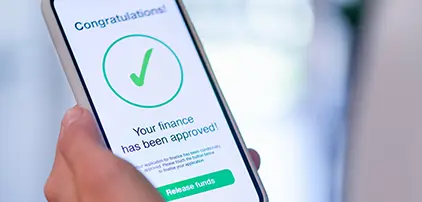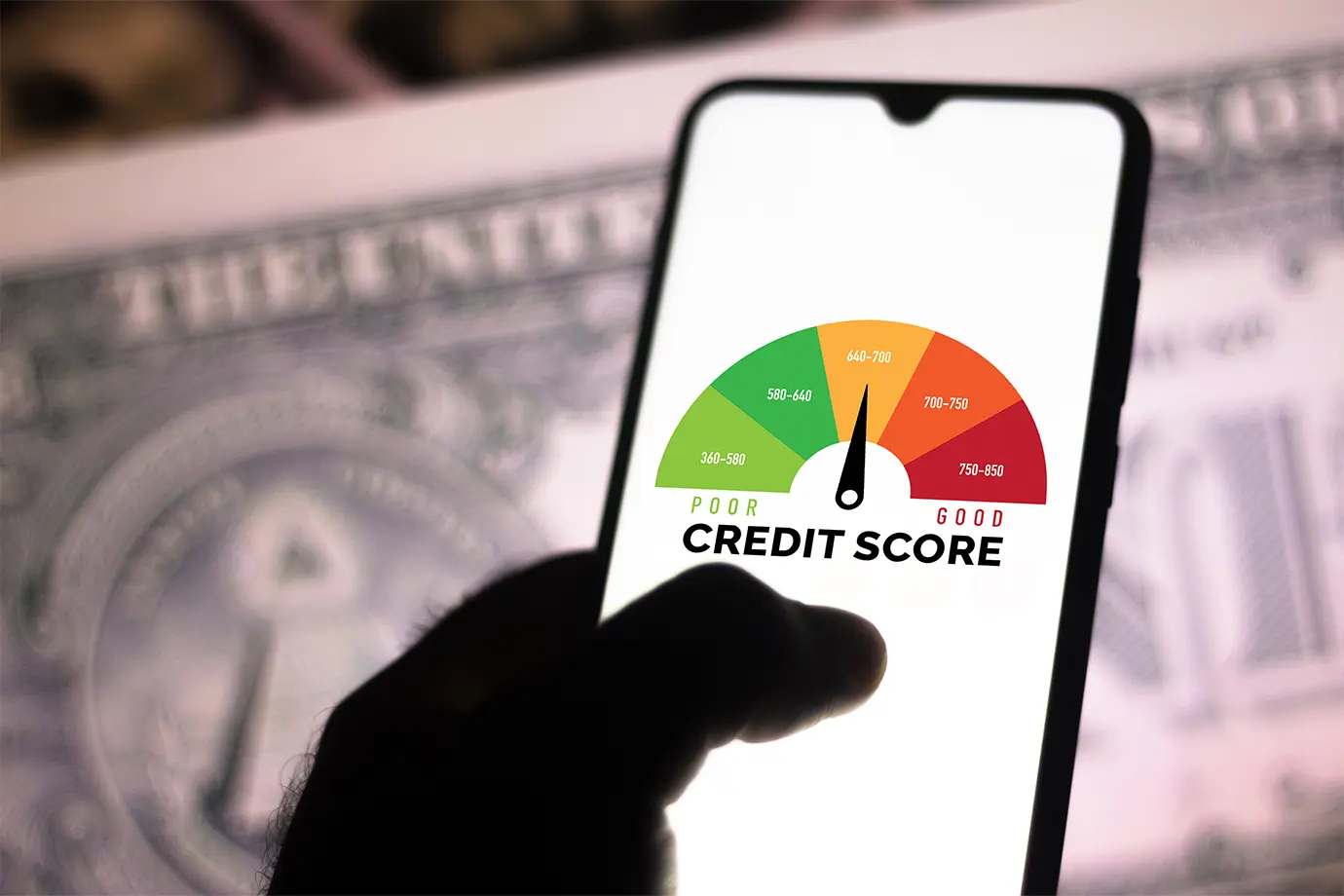On This Page:
How Your Credit Score is Calculated?
What is the Average Credit Score for Personal Loans?
How Do Personal Loans Affect Your Credit?
What Do You Need to Qualify for a Personal Loan?
Can You Get Personal Loans for Fair or Bad Credit?
How Long Does It Take to Improve Your Credit Score?

Pre-Qualify With No Impact On Your Credit Score
A personal loan helps you consolidate your debt or cover more considerable expenses. However, you must know the eligibility criteria before applying for personal loans. One of the requirements is at least a fair credit score, but only sometimes. Read further to determine what credit score is needed for personal loan approval.
Key Takeaways
- Every lender has its minimum credit score requirements.
- A credit score higher than 670 will qualify you for better interest rates.
- Many lenders offer personal loans for bad credit scores, even if the terms and conditions aren’t favorable.
- If you have a poor credit history, you may improve it in the long term.
- A higher credit score will guarantee you more convenient monthly payments.
How Your Credit Score is Calculated?
There are three major credit bureaus: TransUnion, Experian, and Equifax. Each of them has its algorithm for calculating your credit score. But generally, the following factors play a significant role in FICO scores and VantageScore:
- Payment history (35%) – your on-time or missed payments;
- Amounts owned (30%) – how much debt you have on your name;
- Length of credit history (15%) – the older your credit accounts, the better.
- Credit mix (10%) – how many different loans you owe, such as revolving credit, installment loans, etc.
- New credit (10%) – new loans in the past three months.
What is the Average Credit Score for Personal Loans?
Your credit score substantially influences your ability to obtain a personal loan. Low credit scores also impact the personal loan amount and interest rate. There is no set minimum credit score requirement for personal loans. Instead, it varies per lender.
Some lenders will accept loans with credit scores as low as 580 or even 300, but scores above 640 often provide the best rates. Remember that your credit score is not a single figure that changes depending on multiple scoring algorithms and lender computations.
More: Here’s where to get the best 520 credit score loan.
How Do Personal Loans Affect Your Credit?
Borrowing a personal loan might negatively influence your credit if you are not careful. For starters, merely asking for a personal loan might result in a hard inquiry on your credit report, causing your credit score to fall somewhat. More importantly, failing to make timely payments may result in a substantially lower credit score. BadCredify specialists suggest making on-time payments and improving your credit history in the long term.
What Do You Need to Qualify for a Personal Loan?
To qualify for a personal loan, you must meet the following eligibility criteria:
- Age: be at least 18 years old;
- Citizenship/permanent residence: have a valid ID card;
- Banking details: have a valid checking account;
- Employment status: prove you have a steady income;
- Contact details: provide valid email address and phone number.
Can You Get Personal Loans for Fair or Bad Credit?
A personal loan is available for bad credit scores, but the rates won’t be as favorable as for higher credit scores. You can borrow money with a poor credit score, but personal loan lenders will charge additional fees to cover their non-payment risks.
How Long Does It Take to Improve Your Credit Score?
While bad information can stay on your credit reports for up to seven years (and up to ten years in some situations), you can progressively improve your credit scores by paying your credit bills on time and lowering your credit usage ratio. You can either pay off your existing credit accounts or create a new revolving account to expand your available credit. The leading credit agencies say your score may climb in 30 to 45 days.
Tips to Build Your Credit Reports in the Long-Term
Want to improve your low credit score? Consider the following tips and tricks from BadCredify specialists. You’ll be able to get a personal loan with a better interest rate and reasonable origination fees.
Cover your unsecured debt on time
We suggest you make on-time monthly payments (car repairs or medical bills) and cover your credit card balances. These loan payments will be reported to the major credit bureaus. Your payment history will be improved, and your FICO score will rise.
Decrease your credit utilization ratio
A credit utilization ratio shows lenders how often you apply for loans or use your credit card. The lower your credit utilization ratio, the better your FICO score and the lower your interest rate for unsecured loans.
Check credit report errors
You can dispute the errors on your credit file to build your FICO score and get a personal loan with better terms. File a complaint with the major credit reporting bureaus and bring the information about all your unsecured and secured loan payments. Also, you can prove that your debt-to-income ratio is low.
Bottom Line
Completing the personal loan application is considered the first step in borrowing money, but it’s wrong. The first step is checking your credit rating. Hoping to have good credit makes you expect better interest rates, but it’s not always easy to get one. That’s why we suggest you take your time and build a good credit rating, even if there is usually no minimum credit score needed.

